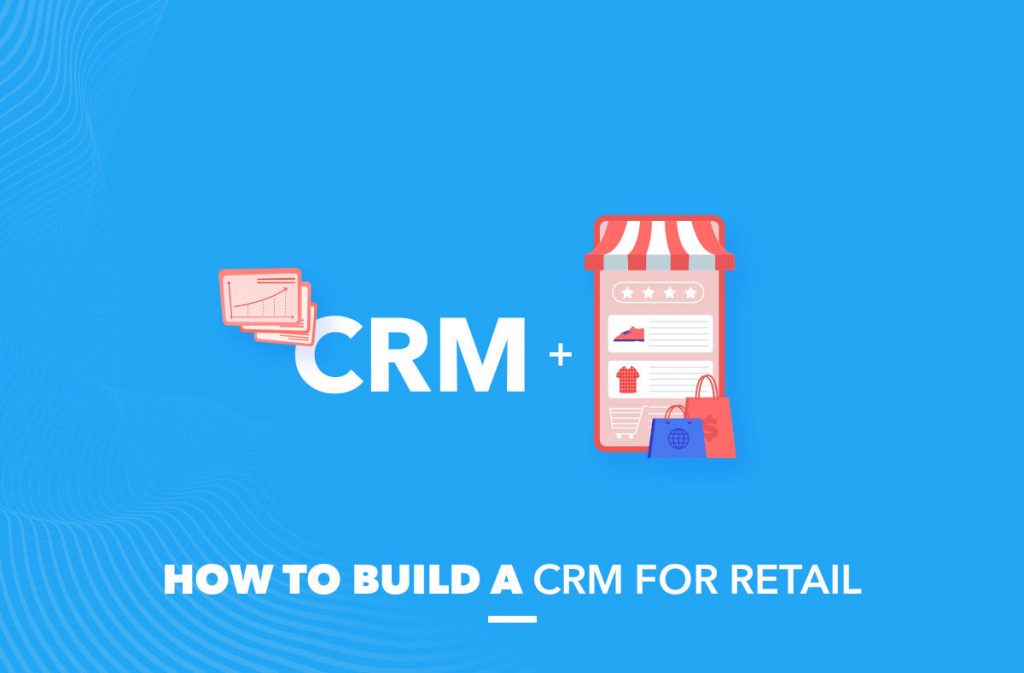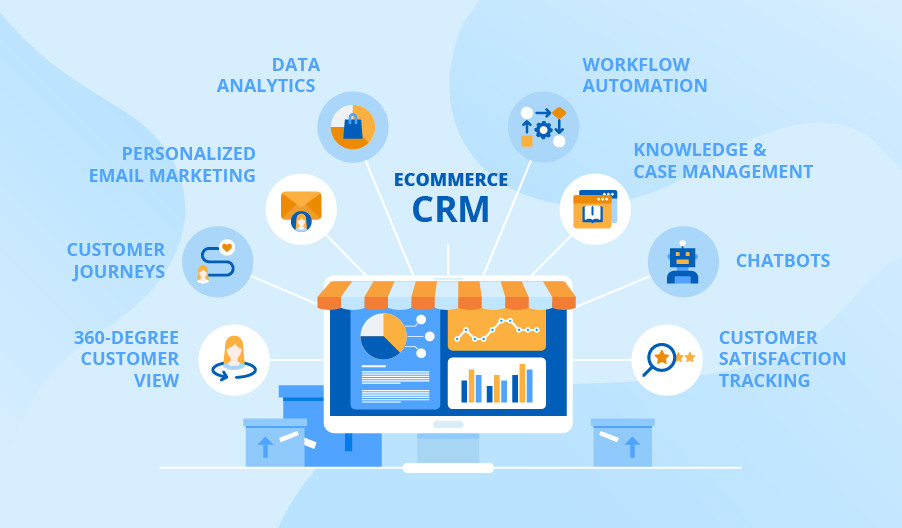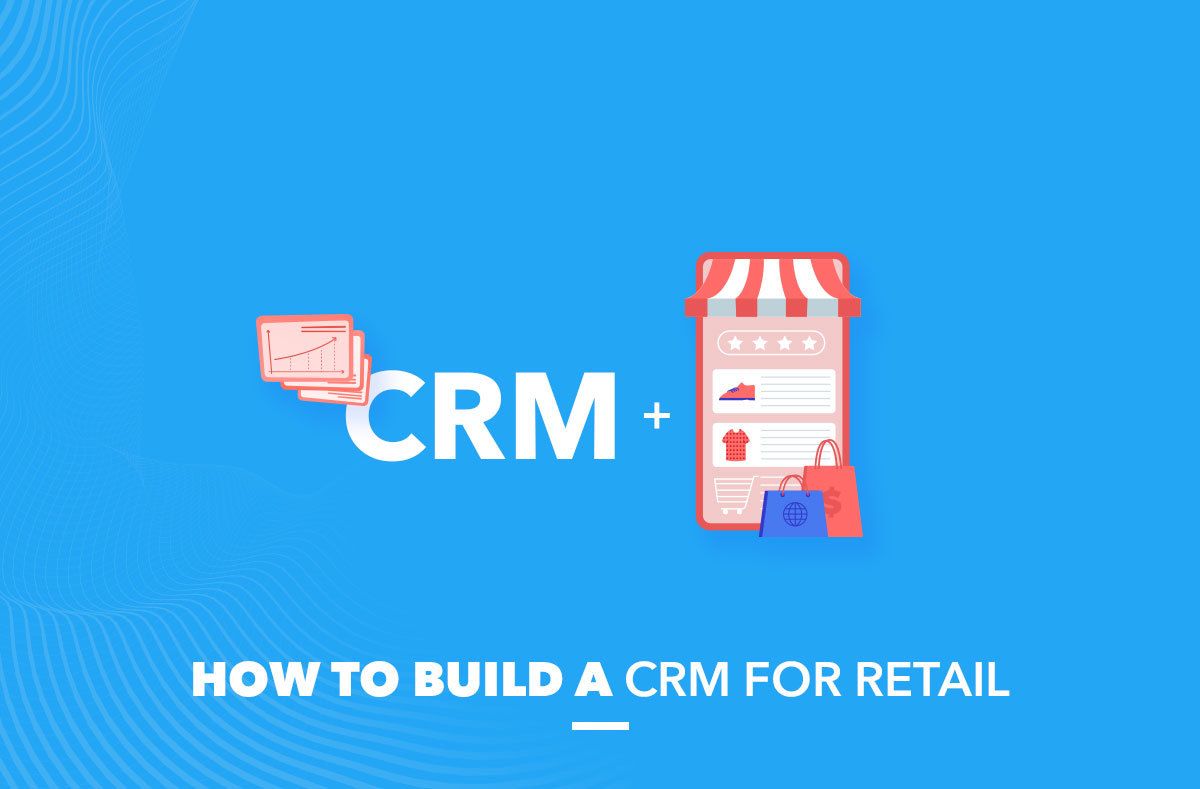
The functions of eCommerce are greatly boosted by the features of CRM, therefore the majority of businesses combine the benefits of the CRM with the functionality of eCommerce. Today, CRM businesses are developed enough to earn billions and offer eCommerce features that are necessary to scale up the business. Moreover, CRM offers automation for online and offline businesses that minimize expenses and thus make the mission possible for the majority of the businesses to sell their products and services online. All of this makes CRM an important component of successful online businesses.
What is CRM in retail?
CRM means Customer Relationship Management that helps to automate and simplify all processes of work with customers. Practically, CRM is a must for retail to be on par with the customers. Today, retail businesses implement and use CRM to provide employees with all necessary information about the customers and distribution partners. While CRM enables businesses to get more information, it also helps to automate the data processing to the point that customer management works more smoothly and flawlessly. For a retail business, CRM helps to reduce costs and optimize routine processes. In addition, CRM allows monitoring the performance of the business, increasing the engagement level of customers.
As soon as CRM helps to gather and process data about customers and their preferences, using its benefits gives a huge boost to the business. Today, the biggest part of retail is based on building relationships with the customers, and at this point, knowing more about the demographics of customers is a must to succeed in the market. Practically it makes sense: when you have demographics for your customers, you can learn their preferences and buying patterns, which helps a lot to offer your customers exactly what they need. Even before the digital era, CRM helped businesses to ask survey questions to their customers. Today, with much more advanced technologies, CRM provides a much richer pool of tools for asking questions and getting answers that are important to the business.
Which Functions Does a CRM Perform?
Mainly, CRM gathers all data about all actions that customers do, saves the data about all actions in the list, and helps to process data in a way to understand the preferences and patterns of the customers. More technical details about the functions of the CRM are going to be discussed in the paragraphs below.
Contact Data Collection, Storage, And Management
Collecting, storing, and managing contact data of customers is the first and foremost purpose of CRM. Today, with the increased outreach of social media, as soon as contact data of users are available, it becomes possible to find and store entire profiles of information about them. At this point, the task of CRM became more complex. When CRM gathers profiles instead of gathering just contact data and demographics, it’s possible to know hobbies, interests, and important dates of customers, which creates opportunities for targeted marketing. Thus, CRM creates, processes, and stores customers’ data as entire profiles with contacts, links to their social media pages, and purchasing & browsing history.
Organization of Work Flow of The Team
When it comes to the organization of the workflow, CRM is also helpful. It helps to schedule, perform and maintain tasks. Moreover, CRM helps to automate the workflow of the team that works for the business. With CRM, you can build a business process in the team that follows all steps of the product flow, from selling to handling a customer review.
Deal and Pipelines Management Mission Control Center
CRM includes deal and pipeline management that includes recording, managing, and organizing all business processes that take place in business. Thus, you can track the effectiveness of the working processes and assign and reassign the tasks to more competent team members. Oftentimes, CRM includes the board that illustrates all the tasks and reports of employees, which helps to understand what trends they work with and how popular these trends are with customers.
Calendar and Reminder Modules
Usually, CRM has the feature of calendars and reminders. This helps to plan business processes seamlessly through sending each other reminders and agendas of upcoming meetings. Thus, with the CRM platform, you are staying in contact not only with customers but also with partners.

Reporting & analytics
Reporting & analytics help to stay ahead of trends and react proactively to any changes on the market. Big data is the tool that facilitates gathering and processing data that help to see the dependencies and predict future trends. The main issue is to research issues appropriately, and CRM reporting and analytics tools help a lot to locate and understand market trends.
Social media integration
Social media integration helps a lot to understand the demographics and preferences of your customers. In turn, a deep understanding of the needs of your customers helps to target marketing campaigns more precisely. Usually, CRM might be integrated with social media via API or a tool such as Zapier, which is a good choice for the growing retail business.
Email marketing
Every CRM includes email marketing that is a powerful tool to automate email marketing. As soon as marketing through email still brings high conversion rates, email marketing is a great way to enhance the awareness of your customers about your products. When it comes to retail, email marketing is the first choice to remind about abandoned shopping carts, favorite items, and promotional campaigns with discounts according to the interests of the customers.
Ready-Made CRM vs Custom CRM
Ready-made CRM is faster and cheaper when it comes to implementing it into business. However, ready-made CRMs do not always meet the needs of growing businesses. Sometimes, businesses might need special features that are not included in regular ready-made CRMs. Moreover, sometimes small businesses don’t want to overpay for unnecessary features, and in this case, it makes sense to invest in their own custom-developed CRM.
Practically, it depends on the needs of the business. When you have a set of features that are priced in the budget of any ready-made CRM, it is better to pay a subscription fee and use CRM out of the box. On the other hand, when the features that you need are included in the overpriced package and out of your budget, a one-time investment in the development of CRM is a more reasonable decision to make.
Things To Consider Before You Build a Custom CRM For eCommerce
When you are thinking about opting for a custom CRM, think about the expenses it might bring in terms of your monthly payments for a desired set of features. Usually, ready-made CRMs provide certain features that you choose to pay for. Think closely about the features that you need to have in your CRM and think how many months it will take for the investment to be returned.
Usually, when you need a set of features that are not far from standard ones, you might need to pay as little as $40,000. The total budget for developing custom CRM might not be that high when you use development services provided by developers in Eastern Europe or Asia. With developers from Eastern Europe, you are getting high-quality development services with less hourly pay.
Conclusion
In the end, the choice of the CRM defines the success of your marketing campaigns, so it makes sense to invest in getting and using the CRM that fits your needs best. Today, retail goes digital, and the business that can predict the trends is going to lead the market. It is important to stay proactive, and good CRM helps with this, bridging businesses and customers. Therefore, more and more businesses adopt CRM to develop their business further, and many of them choose to build their CRM to meet their specialized needs and not to overpay for bundled features. Oftentimes, you want to have a helping hand along the road of implementing a CRM, and SOFTLOFT company will offer it happily. Just contact us to get timely and professional help.



